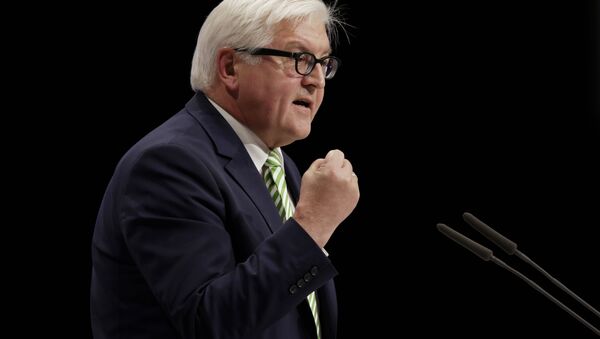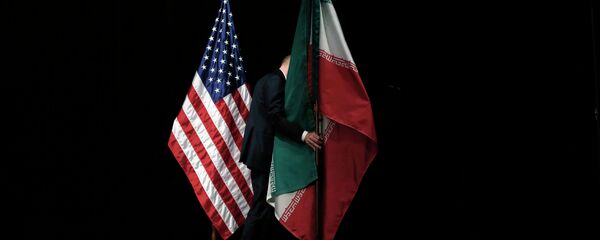"We have to grow up and I hope that in this process we are gradually coming to an end… but frankly speaking the development of transatlantic relations really concerns me," Germany's President Steinmeier said.
He explained that the reason behind his anxiety is not because he "is looking at a president with some irritating Twitter messages."
"The new administration in Washington perceives Europe not as a part of a world community within which countries cooperate, but rather as an arena where every country has to find its way around," the politician clarified.
Steinmeier went on on saying that German Chancellor Angela Merkel and French President Emmanuel Macron "did the right thing in Washington," since they pointed at European interests not only in the sphere of trade, but also stressed the necessity to preserve the Iran nuclear deal.
READ MORE: US Threat to Pull Out of Iran Nuclear Deal Risks Opening Pandora's Box – Prof
The Iran nuclear deal, which fate Donald Trump is due to difine on May 12, was among the main topics during Merkel’s visit to the US. The German chancellor as well as her French counterpart several days prior to her visit, spoke in favor of preserving the Joint Comprehensive Plan of Action (JCPOA), more commonly known as Iran nuclear agreement.
The International Atomic Energy Agency (IAEA) has not once certified that Tehran has been fulfilling its nuclear-related commitments. On April 23, the nuclear watchdog's chief coordinator Cornel Seruta once again reiterated that "Iran was subject to the world’s most robust nuclear verification regime."
The JCPOA with Iran was signed on July 14, 2015, by the European Union and the P5+1 group of countries — the United States, Russia, China, France and the United Kingdom plus Germany. The accord stipulated a gradual lifting of anti-Iran sanctions in exchange for Tehran curbing its nuclear program and allowing inspections to ensure that the nature of the program is peaceful.



